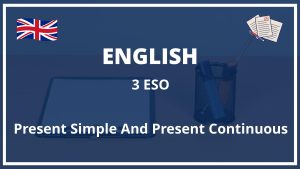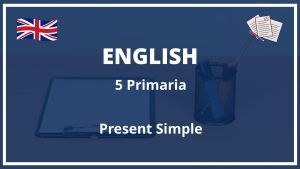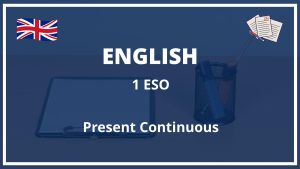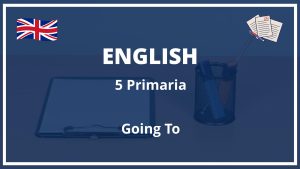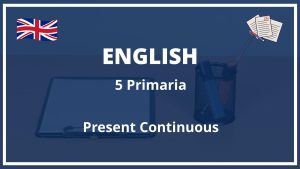
Abrir Ejercicios Presente Simple Y Continuo 5 Primaria | Exercices
Explicacion Presente Simple Y Continuo Ingles 5 Primaria
El presente simple se forma con el verbo to be en el presente y el verbo en infinitivo sin to. Se usa para hablar de acciones habituales, eventos programados o estados permanentes. El presente simple se usa con adverbios de frecuencia, que indican cuántas veces se realiza la acción, como always, usually, often, sometimes y rarely. También se usa con every para hablar de eventos que ocurren con regularidad.
El presente continuo se forma con el verbo to be en el presente y el verbo en gerundio (-ing). Se usa para hablar de acciones que están ocurriendo en el momento de hablar o de eventos que están sucediendo en el futuro cercano. El presente continuo se usa con adverbios y expresiones de tiempo como now, look, listen, soon y today.
A veces, el presente simple y el presente continuo se pueden usar para hablar de eventos futuros. Sin embargo, el presente continuo se usa más a menudo para eventos futuros programados, mientras que el presente simple se usa para eventos no programados.
Ejercicios Resueltos Presente Simple Y Continuo Ingles 5 Primaria
Ejercicios Resueltos Presente Simple Y Continuo Ingles 5 Primaria
El presente simple se usa para hablar de acciones habituales o que suceden siempre. En afirmativo, se añade -s al verbo en singular (I work – yo trabajo). En negativo e interrogativo, se emplea el auxiliar do (I don’t work – yo no trabajo; Do you work? – ¿Tú trabajas?).
Para formar el presente continuo, se usa el verbo to be en presente (I am working – yo estoy trabajando) seguido del verbo principal en gerundio (que se forma añadiendo -ing al infinitivo del verbo, sin embargo, hay que tener en cuenta las irregularidades). Este tiempo verbal se usa para hablar de acciones que están sucediendo en el momento de hablar o que están programadas para un tiempo determinado. Se puede utilizar en afirmativo, negativo e interrogativo de la misma manera que el presente simple.
Por último, el presente perfecto se usa para hablar de acciones que han sucedido en un tiempo determinado o indeterminado del pasado y que aún tienen consecuencias en el presente. En afirmativo, se forma con el auxiliar have/has seguido del verbo principal en pasado participio (I have worked – yo he trabajado). En negativo e interrogativo, se emplea el auxiliar have/has junto con el sujeto (I haven’t worked – yo no he trabajado; Have you worked? – ¿Has trabajado?).
Ejercicios
Completa las siguientes oraciones utilizando el verbo entre paréntesis en presente simple o continuo:
1. I usually (walk) to school but today I (go) by bus.
2. Look! The boys (play) football in the park.
3. (Do you often (watch) TV after school?
4. I (not work) on Sundays.
5. They (live) in Madrid but now they (be) on holiday in Seville.
6. (Be you (happy) with your new job?
7. We (have) an English test next Monday.
8. It (not rain) very often in summer.
9. I (not like) get up early.
10. She usually (go) out with her friends at weekends but this weekend she (stay) at home.
11. Look! They (kiss).
12. I (not understand) what you (say).
13. They (not work) hard enough.
14. (Be it (easy) to learn English?
15. It (not snow) a lot in winter.
16. I (not like) play tennis.
17. He (not write) very well.
18. We (not speak) English very often.
19. I (not drink) coffee.
20. They (not live) in a big city.
Completa las siguientes oraciones utilizando el verbo entre paréntesis en presente perfecto:
1. I (not see) him for ages.
2. We (be) on holiday for two weeks.
3. They (not arrive) yet.
4. I (not have) breakfast yet.
5. She (not do) the shopping yet.
6. We (not go) out tonight.
7. I (not work) hard enough.
8. They (not finish) their homework yet.
9. We (not eat) out very often.
10. I (not drink) coffee.
11. They (not live) in a big city.
12. We (not have) a lot of fun.
13. She (not smoke).
14. He (not speak) English very well.
15. They (not write) very well.

